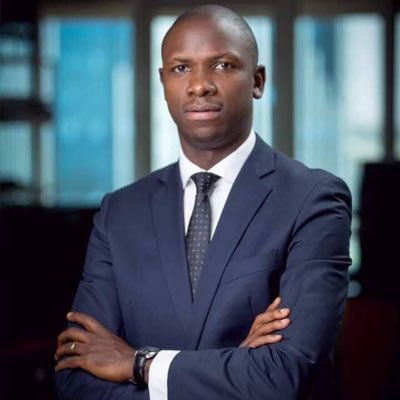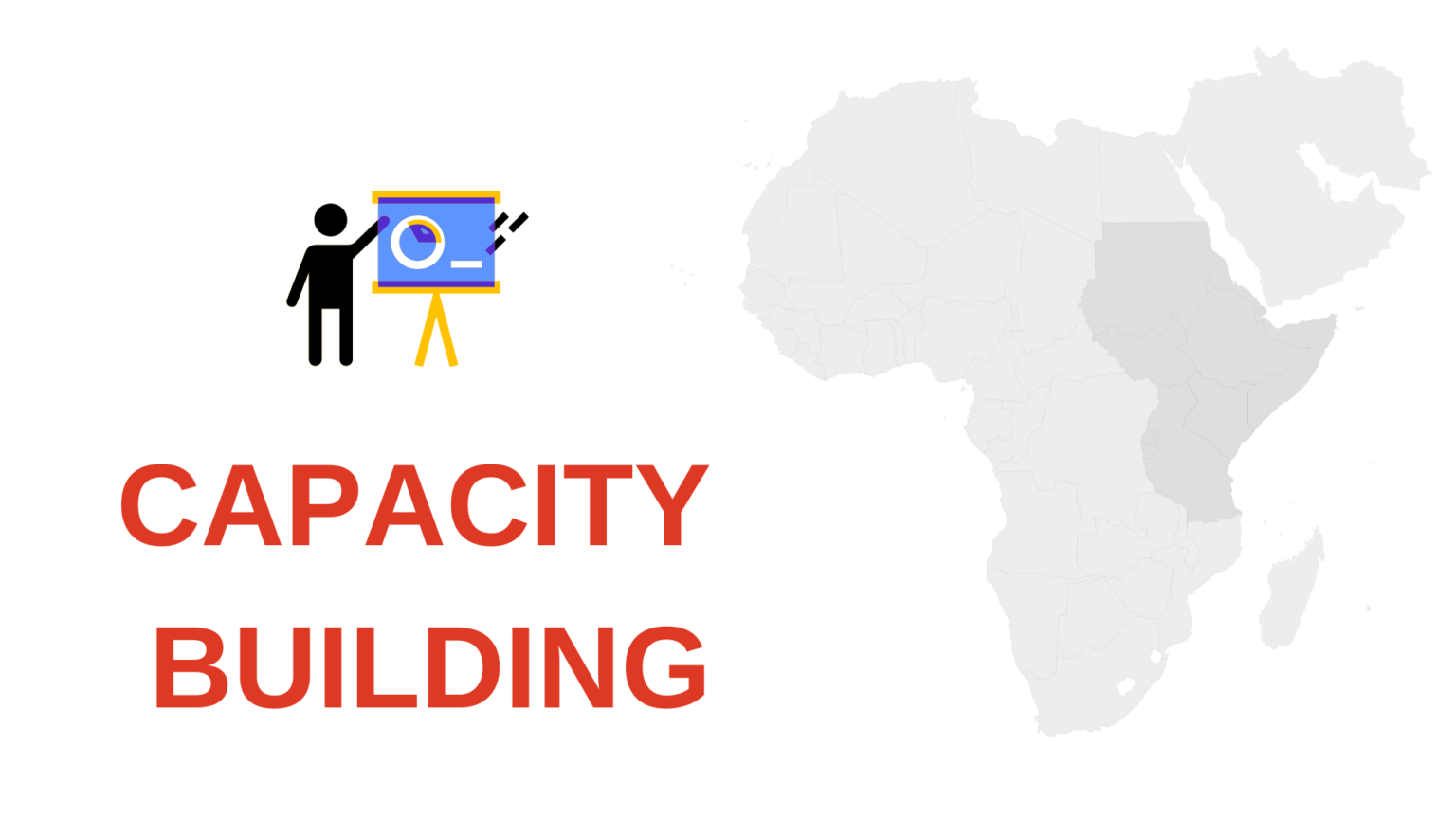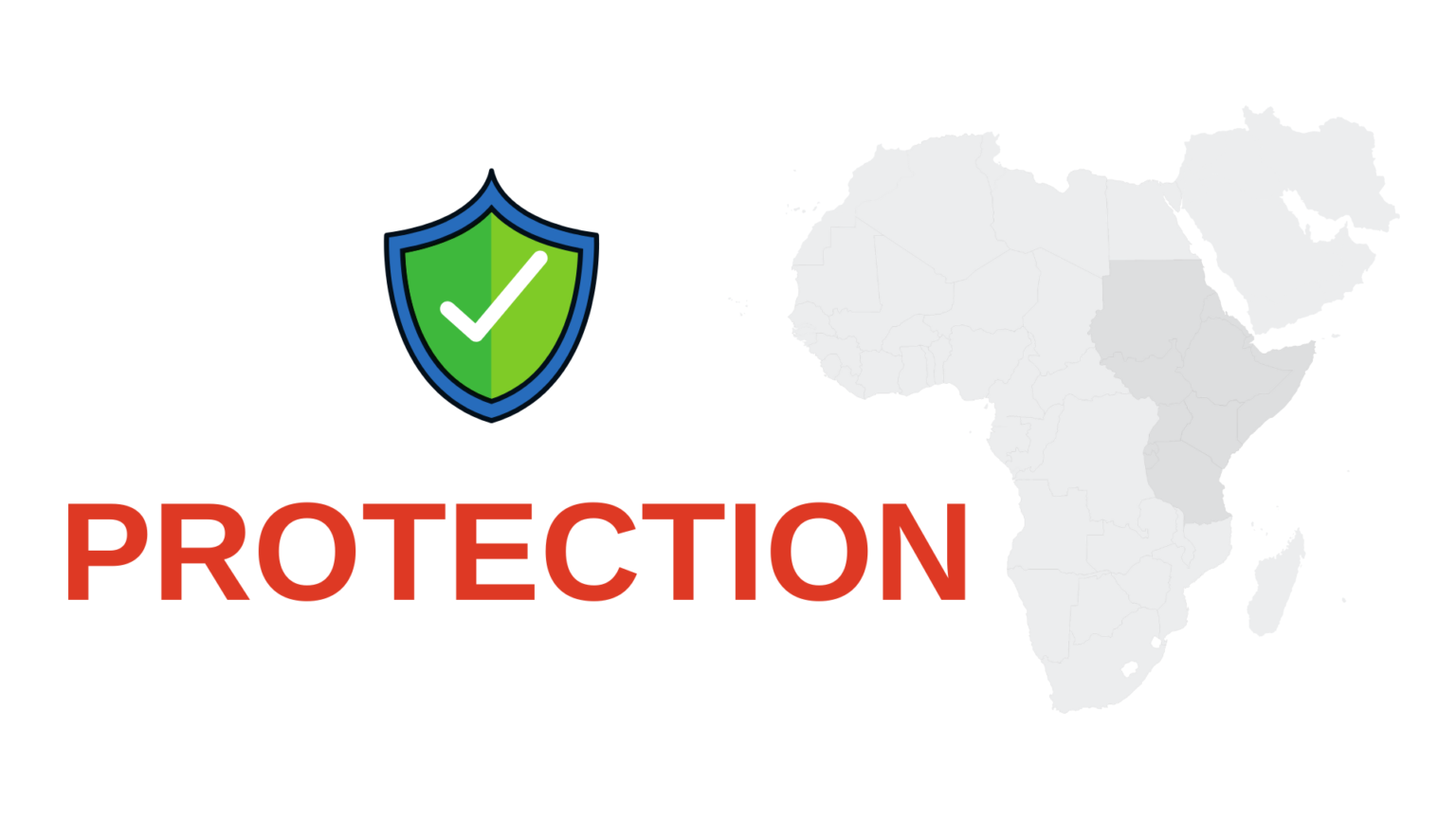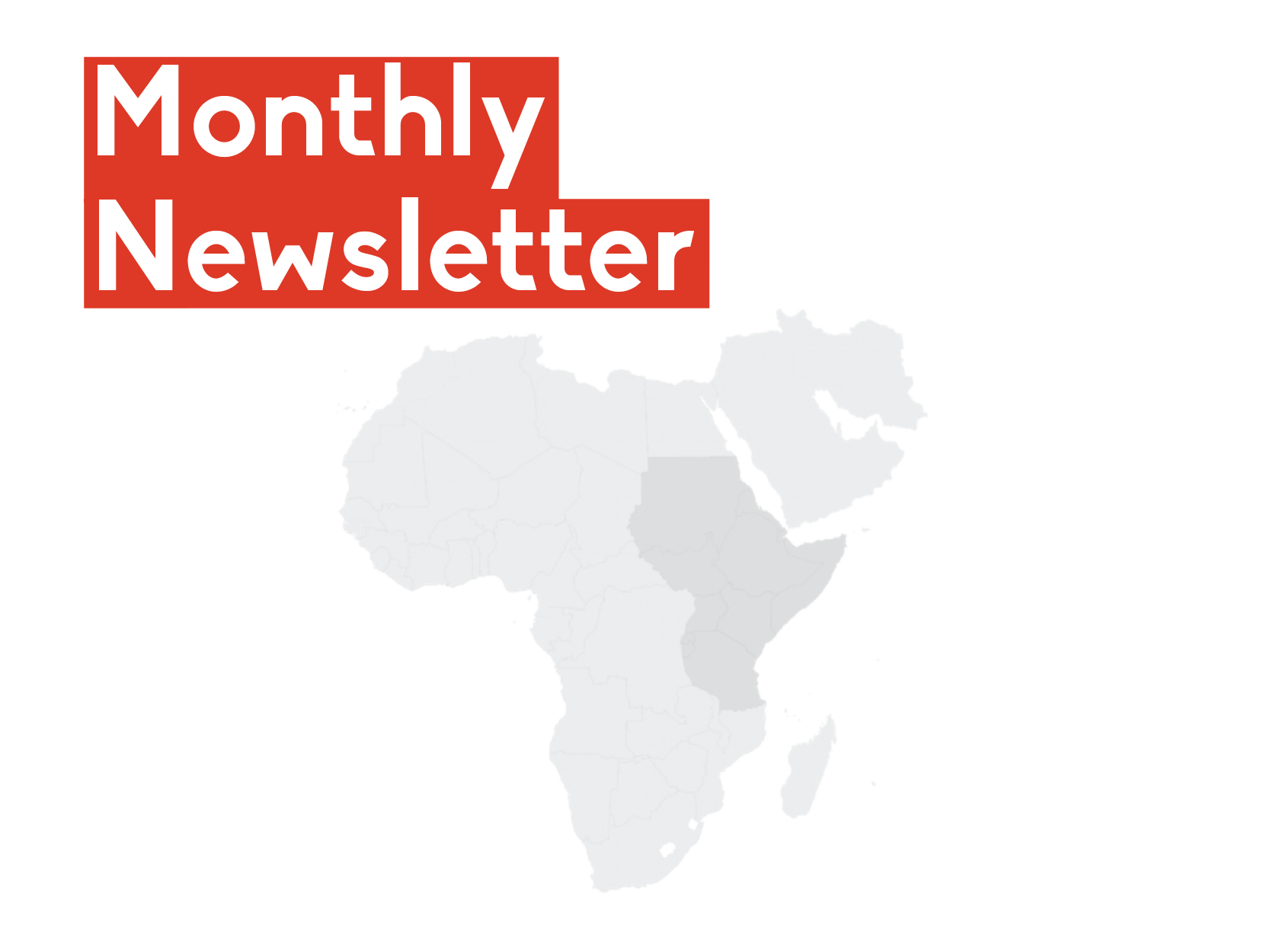Hello
Friends,
In
June, the African continent saw a surge in human rights violations,
highlighting the growing risks faced by those speaking truth to power. In
Kenya, peaceful protests were met with deadly force, mass arrests, and media
blackouts. In Ethiopia, journalist Tesfalem Waldyes remained in detention
despite a court order for his release, amid official attacks on media
independence. In Togo, mass protests against poor governance and constitutional
reforms were violently suppressed, leaving lasting scars. Across the region,
civic space continued to shrink under heightened surveillance, intimidation,
and disinformation.
From
2 – 6 June 2025, DefendDefenders convened the Changemakers meeting in Lusaka,
Zambia, with support from our Consortium for Human Rights and Media in
Sub-Saharan Africa (CHARM) partners. Although not a direct response to the
unfolding events across the continent, the gathering provided a timely and
much-needed space for 16 human rights defenders (HRDs) from Kenya, Zimbabwe,
Nigeria, Zambia, and South Africa to regroup, reflect, and build resilience. It
was a vital platform for learning, healing, and reaffirming that their safety
is a strategy and their wellbeing, a form of resistance, in an increasingly
hostile environment.
In
these difficult times, HRDs need to be well prepared with all bases covered, because
justice cannot prevail when its defenders are broken, and freedom cannot thrive
when those who protect it live in fear.
At
the high-level
Leadership Summit in Maputo, Mozambique, I took a moment to reflect on
2023, when we gathered with distinguished guests in Bishoftu, Ethiopia to
recalibrate the Kampala Plan of Action and reassess our collective efforts in
response to emerging challenges. During that gathering, we expressed deep
concern over the alarming decline in trust in multilateralism and the erosion
of the global order grounded in international law and the rule of law. Two
years on, we are witnessing a worsening trend of democratic backsliding and unconstitutional
changes of government, which continue to pose grave threats to HRDs and
pro-democracy activists. It is increasingly clear that these shifts have
further intensified the vulnerabilities faced by HRDs across the continent.
Meanwhile, persistent conflicts and crises in several African regions are
obstructing progress towards our shared vision of a prosperous and equitable
continent. These realities, reflected once again during the Summit held from 11
to 13 June 2025, underscore the urgent need to strategise and reposition our
network as a relevant and impactful force, both within Africa and on the global
stage.
As
always, DefendDefenders remains steadfast in its commitment to protect those
who risk their lives for freer civic spaces. I invite you to turn the pages for
details of our engagements this month.
Hassan
Shire
Executive Director,
DefendDefenders
Chairperson, AfricanDefenders
Human Rights Defender of the Month: David Kaggwa

David
Kaggwa is a seasoned legal practitioner with over two decades of experience in
Uganda’s legal landscape. Since the inception of DefendDefenders in 2005, he
has served on its board as Board Secretary, playing a key role in shaping its
governance and legal compliance.
“I have seen thousands of people benefit from the grants and protection provided by DefendDefenders. Through my legal advisory role on the board, I’m able to give back to society by contributing to the support we offer to human rights defenders.” – David Kaggwa
Updates from DefendDefenders

From 2 – 6 June 2025,
DefendDefenders, with support from CHARM partners, facilitated the Changemakers
meeting, bringing together 16 human rights defenders from across Sub-Saharan
Africa. The workshop aimed to equip participants with essential skills in
digital security, well-being, and storytelling to enhance their safety,
resilience, and advocacy impact. It focused on three key objectives:
strengthening their ability to protect against online threats, improving
strategies to manage stress and prevent burnout, and developing impactful
storytelling skills to amplify their advocacy and effectively engage audiences.
From 9–13 June 2025,
DefendDefenders conducted a digital security audit and preventative support
needs assessment in Nairobi, Kenya. The exercise involved direct engagements
and aimed to identify existing vulnerabilities within IT systems and practices,
evaluate associated risk levels, and provide actionable remediation measures to
address and mitigate those vulnerabilities.
Between 9–13 June 2025, DefendDefenders
conducted a digital security audit and a preventative support needs assessment
in Mombasa, Kenya. The exercise included in-person engagement with staff and a
comprehensive review of digital assets, infrastructure, and technologies. The
primary objectives were to identify vulnerabilities in digital security
systems, develop a remediation plan for the identified issues, and assess the
overall need for ongoing digital security support.
Between 16–18 June 2025,
DefendDefenders conducted a training on physical and digital safety and
security in Nairobi, Kenya. The timely intervention was well received,
especially in light of the resurgence of mass protests in the city. As an
outcome, participants committed to strengthening their organisational security
protocols.
On 19–20 June 2025,
DefendDefenders conducted follow-up engagements on physical and digital
security with three organisations in Kenya. It was evident that the three
organisations had implemented most of the recommendations from previous
security audits and training. That said, there remains a need to support the
implementation of certain aspects of their security action plans and to extend
training to board members and close collaborators.

DefendDefenders
kicked off its engagement at the 59th session of the UN Human Rights Council
(HRC59), held from 16 June to 9 July 2025, with a primary focus on Eritrea.
Together with Elsa Chyrum, we conducted a week-long advocacy mission in Geneva
(16–20 June), engaging with state representatives, hosting a side event, and
delivering an intervention during the plenary debate with the UN Special
Rapporteur on Eritrea, Dr. Mohamed Abdelsalam Babiker. Unfortunately, the
session also saw us push back against a procedural attempt by Eritrea, which
tabled a draft resolution aimed at terminating the Special Rapporteur’s
mandate.
From
11 to 13 June 2025, AfricanDefenders convened a high-level Leadership Summit in
Maputo, Mozambique, bringing together 46 HRDs from across the continent. The
Summit provided a crucial space for reflection, strategising, and
re-envisioning collective responses to the growing threats facing HRDs. Against
a backdrop of democratic backsliding, unconstitutional changes of government,
and ongoing conflicts, participants examined the widening gap between the
normative protections enshrined in African and international instruments and
the lived realities of HRDs on the ground. A key theme that emerged was the
urgent need for stronger solidarity and a renewed commitment to the human
rights agenda amid the erosion of the multilateral system. The Summit concluded
with the identification of priority areas that will inform the strengthening of
the Kampala Plan of Action (KAPA +15), including proactive diplomatic
engagement with African states and the African Union on transnational
repression, coordinated advocacy with subregional economic blocs, and the
reinforcement of fragile HRD networks in West, Central, and Southern Africa.
From 17 to 18 June 2025, AfricanDefenders participated in the inaugural International Religious Freedom Summit – Africa in Nairobi, Kenya. The objective of the summit was to contribute towards advancing religious freedom across the continent as a vital element to promoting peace, stability, and sustainable development. The summit was jointly organised by the IRF Summit, Pepperdine University, Religious Freedom Institute, and other partners including NED and AfricanDefenders. On 17 June, AfricanDefenders’ was part of a panel discussion that explored the role of religious freedoms in peace building, promoting inclusion and safeguarding human rights across Africa. The discussion highlighted the role of religious and traditional leaders creating community dialogue platforms, the link between religious freedom and the rule of law, the vital role these leaders play in demanding accountability amongst many other themes.

From
1 to 30 June 2025, DefendDefenders received 57 requests for assistance from
Human Rights Defenders across the East and Horn of Africa. Of these, 18
requests (32%) received appropriate interventions, indirectly benefiting 30
individuals.
Country Updates:
COUNTRY
SITUATION
BURUNDI
Burundi’s legislative and local elections on 5 June
2025 unfolded in a deeply repressive political environment, marked by
widespread restrictions on free expression, political participation, and media
independence. The Independent National Electoral Commission (CENI) announced
that the ruling CNDD-FDD party had secured 96.5 percent of the vote and all
seats in the national assembly, alongside nearly complete control of
commune-level councils. The electoral process was marred by credible reports of
intimidation, harassment, and threats by ruling party officials and the
Imbonerakure youth militia, who allegedly coerced voters and obstructed
opposition participation. Voters and civil society actors reported ruling party
dominance at polling stations, ballot stuffing, inflated voter turnout, and
exclusion of opposition members. Independent media faced heavy censorship, with
all election-related coverage reportedly vetted by a central editorial team
under the Ministry of Communication. Election observers, journalists, and
opposition agents were denied access to polling and vote-counting centres,
further eroding the credibility of the process and entrenching authoritarian
control.
ETHIOPIA
On 8 June 2025, plainclothes security
officers in Addis Ababa arrested
journalist Tesfalem Waldyes at the Ghion Hotel and initially detained him in
Estifanos before transferring him to another police station the following day.
On 10 June, Tesfalem appeared before the Addis Ababa City First Instance Kirkos
Division Court, where police accused him of spreading false information. The
court granted bail of 15,000 birr (approximately US$109) and issued a release
order upon payment. However, despite no formal appeal being filed by police
against the release, authorities continued to detain Tesfalem in clear defiance
of the court’s decision.
Prime Minister Abiy Ahmed has publicly criticised
sections of the Ethiopian media, accusing them of
prioritising personal or organisational interests over the national good. In a
recent interview broadcast across state and party-affiliated outlets, he urged
journalists and media institutions to centre their work on advancing Ethiopia’s
national interests. He likened the media to tools such as fire or a machete,
capable of both constructive and destructive outcomes depending on how they are
used. The Prime Minister dismissed the concept of media independence, asserting
that no media is truly impartial. Echoing his remarks, the Government
Communication Service accused commercial media of framing national priorities
through a partisan or governmental lens, thereby undermining broader national
discourse. These comments reflect a growing pattern of official rhetoric that
questions media independence and frames critical reporting as a threat to
national unity.
KENYA
On 7 June
2025, Kenyan blogger and teacher Albert Ojwang was arrested at his parents’
home in Homa Bay County for allegedly spreading false information about Deputy
Inspector General Eliud Lagat. He was transferred from Mawego Police Station to
Nairobi’s Central Police Station, where he died in custody the next day under suspicious circumstances.
While police initially claimed he may have committed suicide, an IPOA
investigation and autopsy ruled out this possibility. CCTV footage revealed that officers brought Ojwang to Mbagathi Hospital at
1:35 a.m. on 8 June in a lifeless state and failed to seek immediate medical
attention. The footage shows a 24-minute delay before he was wheeled into the
casualty ward, where medics confirmed he had been dead on arrival, with visible
injuries consistent with prior trauma. These revelations raised serious
concerns about the officers’ conduct and prompted public outrage. In response,
the Inspector General of Police retracted earlier
statements, blaming junior officers, while IPOA arrested three individuals
including the Nairobi Central police chief and opened a broader investigation.
President William Ruto condemned the killing, affirmed that Ojwang died in
police custody, and directed full cooperation with IPOA. So far, at least 23
officers have been questioned and five suspended. On 16 June, Deputy
Inspector General Eliud Lagat announced he had temporarily stepped down from his
position as investigations proceed. On 23 June 2025, three police officers were
charged with murder along with three civilians. The incident has renewed calls
for structural reforms and accountability in Kenya’s policing system.
Widespread
protests erupted in Nairobi, Mombasa, Kilifi, and Kwale Counties
following the death of blogger Albert Ojwang in police custody. While
demonstrators exercised their constitutional right to peaceful protest, police
responded with excessive force, including tear gas and live ammunition. At
least one unarmed bystander was shot, and 25 others hospitalised, five with
gunshot wounds. In one tragic incident, Boniface Kariuki was reportedly selling
masks and was shot at close range by a uniformed police officer and later
died from his injuries. In Nairobi, credible reports and protest observation revealed that masked goons armed with tyre whips, batons, and
knives were mobilised, transported, and deployed to disrupt protests and
assault critics. Disturbingly, security forces appeared to collaborate with
these groups, with police observed coordinating with them at key locations such
as Moi Avenue, Railways Club, and Kenyatta Avenue. Videos circulated of these violent actors publicly thanking Nairobi’s
Governor. Despite the violence, police failed to intervene effectively and
instead arrested peaceful protesters, including four HRDs in Mombasa, who had
followed legal procedures to notify authorities. The Kenya National Commission
on Human Rights (KNCHR) condemned the arbitrary arrests and called for the
immediate and unconditional release of all peaceful demonstrators. The events
reflect a troubling pattern of state-enabled suppression of dissent and demand
urgent accountability and reform to safeguard civic freedoms.
On 25 June
2025, thousands of Kenyans demonstrated nationwide to mark the anniversary of
youth-led protests against tax hikes and demand accountability for police
brutality and systemic corruption. While the protests were largely peaceful,
they were met with excessive police responses, including roadblocks, barricades around key government buildings, and
widespread deployment of security forces. They used rubber bullets, live
ammunition and water cannons to disperse the crowds. The KNCHR documented 19 deaths, 531 injuries, 15 enforced disappearances, 179
arrests, and cases of sexual violence, including rape and attempted gang rape.
Authorities cited infiltration by criminal elements and property destruction,
with credible reports indicating the use of “hired goons” to disrupt
demonstrations in Eldoret, Mombasa, Nairobi, Nakuru, Nyeri, Kajiado, and
Kisumu. These groups engaged in looting and violence, raising serious concerns
about State sanctioned sabotage of lawful protest.
TANZANIA
During
the 59th session of the UN Human Rights Council, DefendDefenders condemned the
arrest, detention and deportation of former Kenyan officials including a former
Chief Justice and a former Justice Minister, alongside civil society members
who had travelled to Tanzania to observe the treason trial of opposition leader
Tundu Lissu. Among those affected were Ugandan journalist Agather Atuhaire and
Kenyan activist Boniface Mwangi, who were reportedly held incommunicado,
stripped naked, tortured and sexually abused by Tanzanian security agents
before being expelled at the border. These serious allegations require
immediate, independent investigation and accountability. In response,
Tanzania’s Ambassador to the UN, Dr Abdallah Possi, defended
the country’s human rights record and history of peaceful multiparty elections,
stating that those deported had violated immigration procedures by failing to
declare the true purpose of their visit.
UGANDA
Uganda’s recent legal amendment reinstating the trial
of civilians in military courts marks a significant reversal of a Supreme Court
ruling from January 2025 which found the previous law unconstitutional. Despite
slight revisions such as requiring military court officials to have legal
training and asserting their independence, the core provision remains intact.
The amendment was passed under a heavy security presence and amid a boycott by
opposition MPs who argued it defies the spirit and substance of the court’s
judgment. While the government defends the law as a necessary tool for national
security and a deterrent against armed political dissent, critics including the
Uganda Law Society and opposition leaders view it as a legislative manoeuvre to
suppress political opposition. Human rights organisations warn that this move
undermines judicial independence and risks further militarisation of justice in
a context where the military courts have long been accused of political bias
and procedural abuse.

